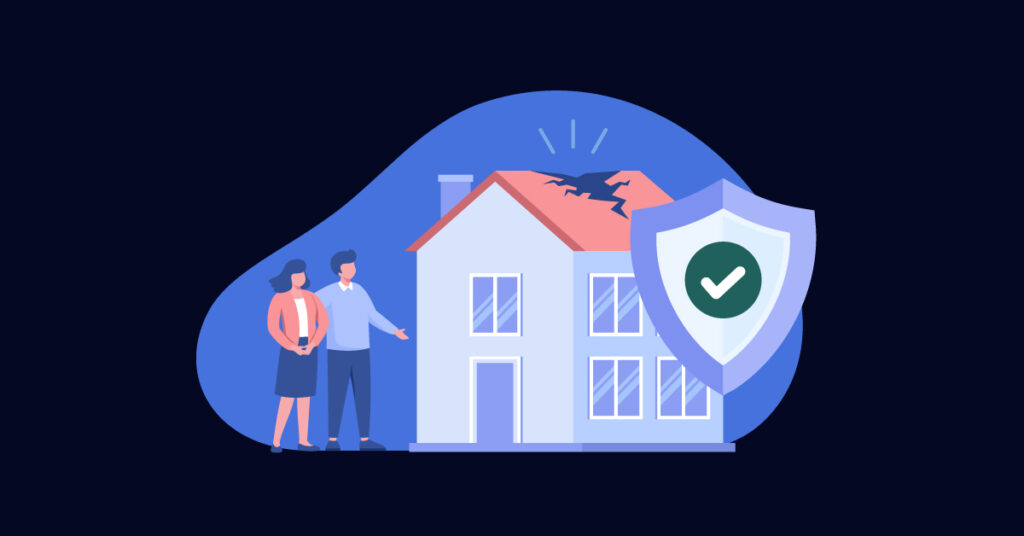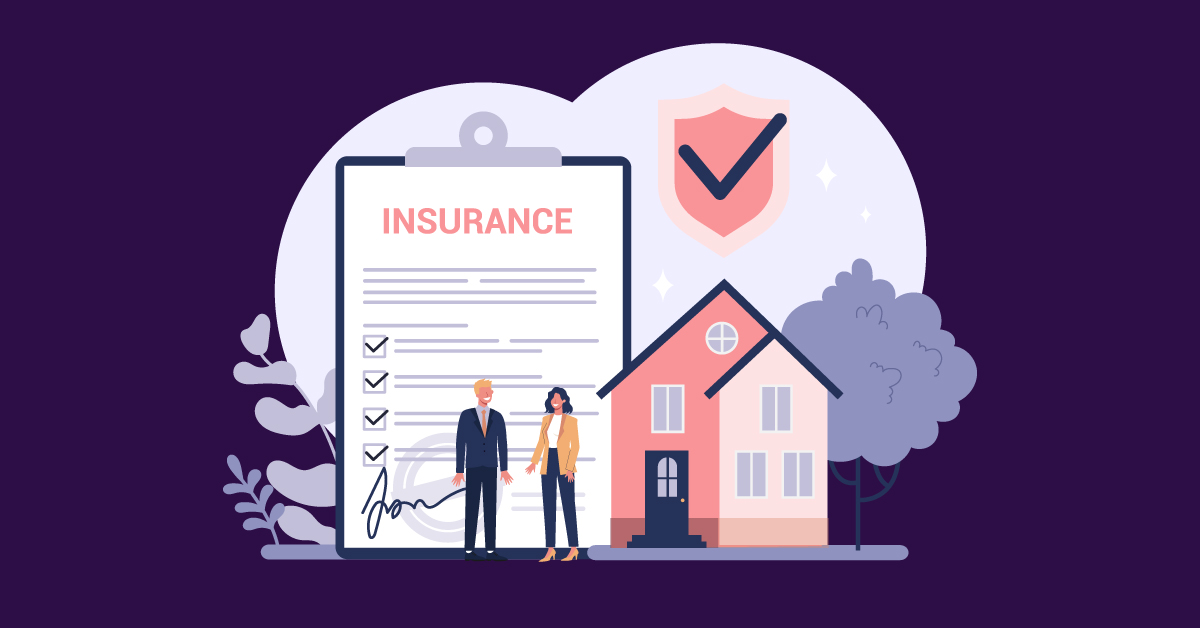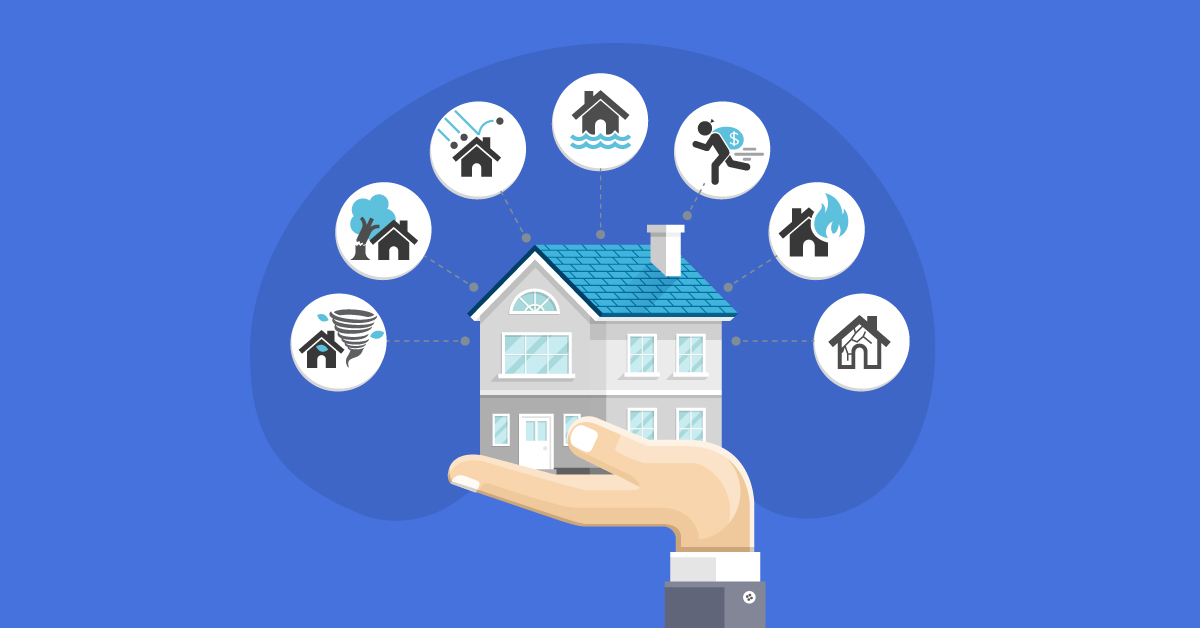Owning a home is everyone’s dream, and walking through the door of your first home is an exciting milestone. But, before getting the keys, you need to think about purchasing homeowners insurance.
Your home is your most valuable investment, so you need to protect it against theft, fire, and other possible mishaps. Typically, homeowners insurance covers destruction and damage to your home’s interior and exterior, theft, loss or damage to assets and other personal belongings, and any third-party liability.
However, before purchasing homeowners insurance, it is imperative to know and understand what you need to consider. You don’t have to go with whatever home insurance company your real estate agent recommends. Read on to learn some top tips for buying home insurance to help protect your investment.
1. Research before buying
While it sounds obvious, many people do not understand homeowners insurance in detail. To protect your home in the best way possible, you need to understand home insurance and the different levels of coverage.
Typically, a home insurance policy covers the structure of the house and the value of its contents in the event of damage. This means you will be compensated for damage caused by the insured risks.
If you are buying a home that was already occupied, it is a good idea to get a Comprehensive Loss Underwriting Exchange Report and assess the claims and losses on the home you are considering. No matter the age of the home you are buying, you need to consider everything that could affect the cost of your policy, including construction materials used to build the house and the age of electrical and plumbing systems.
2. Know how much coverage you need
While it is not always possible to accurately estimate the amount of coverage you need, it is still an essential step in selecting a homeowner’s insurance. A good starting point is calculating how much it would cost to rebuild your home if it were destroyed. Next, consider the cost of replacing your assets and personal belongings and repairing or replacing other structures like outbuildings and fencing.
You will also need to roughly approximate the damage your property might cause to a third party and how much compensation it may need.
3. Get online and get some quotes
Your real estate agent will likely recommend a few home insurance companies, but they are likely to recommend only companies they are affiliated with. Therefore, it’s best to do your due diligence and compare what different companies have to offer. In addition, you may want to ask relatives, colleagues, and friends for recommendations.
To increase your chances of landing a better deal, gather quotes from at least three reputable companies and compare their offerings. For example, some policies may offer substantially more coverage at a reasonable price. But, when comparing, don’t focus on the costs alone. Instead, you need to read every detail of individual policies and understand what each covers and doesn’t cover.
Standard home insurance typically covers the dwelling, personal belongings, third-party liabilities, and additional living expenses. If you are searching for a policy with more financial protection, you will need to look for one that offers add-on options and make sure the additional coverage you opt to buy is included in the quotes.
There is no one-size-fits-all homeowners insurance, so you should look for a policy that provides the coverage you need. The best insurance for you depends on several things, including what you need to be covered and your preference. It is advisable to always go for the policy that provides the most coverage at a reasonable price.
4. Know what the policy covers

Home insurance policies usually cover damage resulting from fire, theft or vandalism, and natural calamities. However, considering that not all policies are the same, it makes perfect sense to understand what your policy includes and excludes.
Some policies may only cover the dwelling; others cover the contents of your home, and some cover both the dwelling and its contents. Understanding what is covered puts you in a better position to negotiate for better terms.
It is typical for home insurance policies not to cover maintenance issues like pest infestations or molds.
5. Know what is enough
There are essentially three different options for coverage: actual cash value, replacement value, and guaranteed replacement value. Surprisingly, many homeowners who buy home insurance policies are usually underinsured, primarily because they insure their homes to “actual cash value,” representing what a willing buyer would pay for the home.
Considering that the cost of building materials is rising every year, it is highly likely that rebuilding your home in the event of damage will cost you more than its market value. To escape challenges that may result from being underinsured, make sure to understand the different levels of coverage and insure your home fully. Although a higher coverage will raise your policy rates, purchasing a replacement value policy or guaranteed replacement value policy can save you a lot of money in the long run.
6. Pay attention to the deductible
When shopping for home insurance, you also want to pick a sensibly high deductible. A deductible is an amount you have to pay from your pocket before your insurer delivers a claim.
Typically, the higher your deductible is, the lower your monthly premiums. For this reason, you should choose the highest deductible you can afford; otherwise, you may end up paying unreasonably high monthly premiums.
Another potential benefit of going with a higher deductible is a lower risk of increasing premiums after claims. But, on the other hand, if you are comfortable paying a higher premium each month, it delivers greater peace of mind when a disaster strikes.
Whether or not to pick a higher deductible will depend on what you are comfortable with and what you can afford. So consider your comfort level and make a choice. Home insurance providers have a variety of premium-deductible scenarios to suit the highly varied needs of different homeowners.
7. Check out additional add-on options
Each policy has exclusions. While an ordinary home insurance policy will cover the structure of your home and some of your belongings, it may not provide full coverage for valuable items like jewelry and coin collections. It would be best to consider supplementing your home insurance policy with extras that offer additional protection.
Some of the disasters you may want to buy additional policy include wildfires, floods, and hurricanes. However, this immensely depends on where your home is located.
If you also work from home, you may need a particular policy for your office. When it comes to selecting add-ons, the idea is to get coverage for things specific to your need and lifestyle.
8. Look for discounts
It is typical for insurance companies to offer discounts on their policies, which can help you save on premiums. However, the discounts are not standardized across the industry.
While doing your search, look into discounts you qualify for. There are a lot of discounts that insurance buyers may be eligible for. Some that may significantly lower your policy rates include multi-policy discounts, new home or new home buyer discounts, loyalty discounts, home safety discounts, and home improvement discounts.
9. Research the company’s trustworthiness
The last thing you want is to buy a policy from a company that won’t compensate you when disaster strikes. You only want to buy from a reputable and financially stable provider. AM Best rates insurance companies and grades them from A+ to F.
When buying your home insurance, never make the mistake of purchasing a policy from insurance with anything below B. Companies with a below B rating with AM Best are unstable and thus cannot pay claims reliably.
Conclusion
Buying a home insurance policy doesn’t need to be complicated. A good rule of thumb is to buy a policy that provides more coverage for reasonably low rates. Asking for referrals or working with an independent home insurance broker can help increase your chances of landing great deals.
Related: 9 Valuable Tips for Switching Home Insurance Policies





